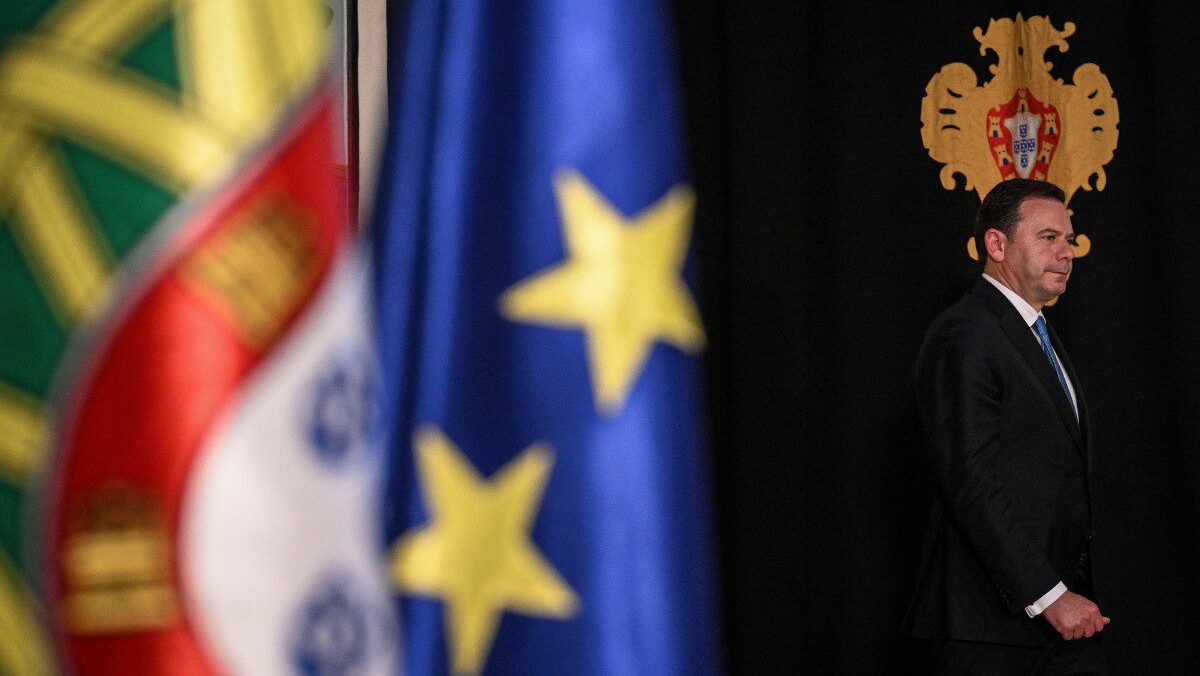
Democratic Alliance (AD) leader Luis Montenegro following a meeting with the Portuguese president at Belem Palace in Lisbon on March 18th, 2024.
Photo: PATRICIA DE MELO MOREIRA / AFP
Portugal’s President Rebelo de Sousa has named Luís Montenegro, head of the center-right Democratic Alliance (AD), as the country’s new prime minister. Montenegro is the leader of the Social Democratic Party (PSD), the largest party in the Democratic Alliance.
The AD won a parliamentary election on March 10th by the tiniest of margins, thereby failing to achieve a working majority.
Following the count of votes from abroad, the Democratic Alliance now has a final tally of 80 seats in the 230-seat National Assembly.
Montenegro, 51, could govern with a majority if he chooses to work with the populist Chega (Enough) party, but he has repeatedly refused to do so.
Since its founding in 2019, Chega has had a meteoric rise, managing to quadruple its presence in parliament (going to 50 seats, up from 12 in the 2022 election).
Obrigado pela confiança, Portugueses.🙏🇵🇹 pic.twitter.com/xrNr2hCbyj
— Partido CHEGA 🇵🇹 (@PartidoCHEGA) March 20, 2024
The party’s platform, calling for a stricter immigration policy and promising to tackle corruption, saw it win enough votes to be a potential kingmaker in the new parliament.
Chega leader André Ventura, 41, is demanding that his party not be snubbed, and that Montenegro bring his party in from the cold, either through granting it ministerial posts in the Cabinet or through a parliamentary alliance.
If not, Ventura has threatened to withhold support on key issues, such as the state budget. In return, he says he is prepared to drop some of Chega’s more stringent policy proposals—such as chemical castration for some sex offenders and the introduction of life prison sentences.
Following his meeting with president Rebelo de Sousa on Monday, Ventura warned that if the AD continued to reject a coalition with Chega, voters would inevitably blame the center-right party for any political instability that ensued.
“We are continuing to put in all our efforts … to reach an agreement that will ensure the country’s stability,” Ventura said. “If there is no government agreement, the AD will be responsible for the instability that will result.”
Since the country’s return to a democratic system in 1976, political power has alternated between the Socialist Party and the center-right Social Democratic Party.
For the past eight years, Portugal was ruled by the Socialist Party (PS), which was brought low in last month’s snap elections following a graft scandal.
The PS—still the second largest party in parliament with 78 seats—has said it won’t stand in the way of the Democratic Alliance forming a minority government.
Montenegro and his newly formed government are due to take office on April 2nd.
